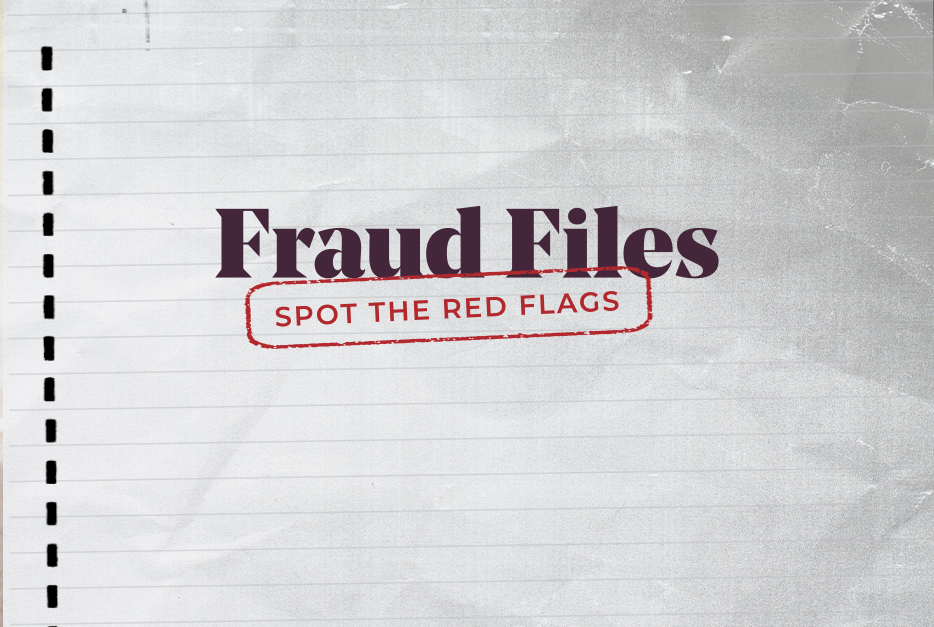Fraud Files: What we wouldn’t do for family
It’s one thing to hear about common scams — it’s another to recognize it when it happens to you. To help you spot the warning signs of fraud, we share real-life stories of the types of scams we encounter at SCU every day. To protect the identities of those involved, names and details of this story have been changed. As you read the story, try to identify what type of fraud occurred and catch the red flags of the scam.
What happened
For many of us, it’s a comfort to know that when trouble hits, we have family to turn to for support.
Unfortunately, it’s a fact that scammers love to exploit.
This was exactly what happened to 76-year-old Patricia, who picked up the phone one morning and heard a panicked voice on the other end of the phone line asking, “Grandma, can I quickly talk to you?”
Hearing the urgency in the caller’s voice, Patricia immediately feared for the worst. “Jeremiah, is that you?” she asked, assuming it was her oldest grandson.
“Yes, it’s me, Jeremiah…Grandma, I’m in a lot of trouble.”
Jeremiah explained that he had been riding in a car with some friends, and they had been pulled over by police, who found drugs in the back of the car. Jeremiah had no idea anything was in the vehicle, but everyone in the car had been arrested, and he needed someone to post his bail.
Jeremiah was distraught and didn’t want his parents to know what had happened. He begged Patricia to keep the whole thing a secret.
Patricia was hesitant, but the intensity in Jeremiah’s voice convinced her that her grandson had been wronged. After all, this was family — of course she would help. Jeremiah told her to go and withdraw $17,000 in cash, and a friend of his would pick it up and post the bail.
The scam
When Patricia headed over to the nearest SCU branch and requested the withdrawal, the teller had a few questions about her request, and called an SCU compliance officer for a second opinion. They suspected the caller wasn’t actually her grandson, but a fraudster trying to take advantage of Patricia’s caring nature. Here are a few red flags they identified in Patricia’s story:
-
The caller didn’t give his name: At first, Patricia was certain it had to be her grandson, since he said his name was Jeremiah — but in hindsight, Patricia recalled that she had given her grandson’s name, and the caller had simply agreed. Scammers are skilled at prompting the victim to give identifying details — name, age, interests, etc. — while making it seem like it was information they already knew.
Other scammers might do more research ahead of time, looking up the victim online and using that information to better impersonate the family member. That’s why it’s important to be careful with the personal details you post online. -
The request was urgent: With grandparent scams, the “family member” needs money — and of course, they need it now. In Patricia’s case, the scammer said the money was for bail, but there are many other reasons they may use: The person is injured and needs money to help with medical care. They’re travelling and ask for help to get out of the country. Or, in some extreme cases, they’ve been kidnapped and need ransom money.
-
The person told her to keep the request a secret: Jeremiah acted embarrassed about his situation so Patricia wouldn’t contact anyone else to verify the story. It’s important to always do your due diligence before sending any money. Patricia could have contacted other family members, or even directly called Jeremiah himself to make sure it was actually him. Or, if she was concerned about protecting his privacy, she could have looked up the jail that was holding Jeremiah and verified that he was being held there.
What happens at SCU
As a financial institution, we require our frontline staff to look out for unusual transactions, and recognize the warning signs of fraud. If we ask you questions, it’s not to invade your privacy — it’s to protect you from potential fraudsters. In fact, there are many organized crime groups who work around the clock to pull off scams like this one.
Fortunately, in Patricia’s case the teller and compliance officer were able to catch the fraud before she withdrew the $17,000. Still, the compliance officer encouraged her to report the incident to the Canadian Anti-Fraud Centre (CAFC), an organization that works to train people on how to recognize and report fraud. They also provide information to law enforcement and governments in Canada and around the world to aid in investigating crime related to fraud. By sharing her story with the CAFC, Patricia was helping to protect other potential grandparent scam victims.
Key takeaway: Be suspicious of any urgent requests for money, even if the person claims to be a family member. Before responding, reach out to someone you trust or contact us for a second opinion.
Sometimes, we can help spot and stop a fraud scam before a member loses money. Unfortunately, this is not always the case. Preventing fraud is an important responsibility we all share. SCU strongly recommends that members remain vigilant and learn to protect themselves from falling victim to fraud. Visit our Fraud Prevention Centre to learn more about fraud and how to spot it, and if in doubt, reach out to SCU for help at 1.800.728.6440.
Does this story sound familiar?
If this has happened to you, or someone you know, here’s how you can report it.



